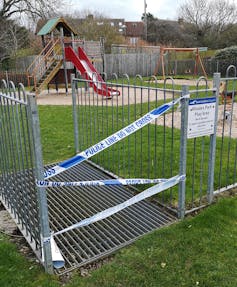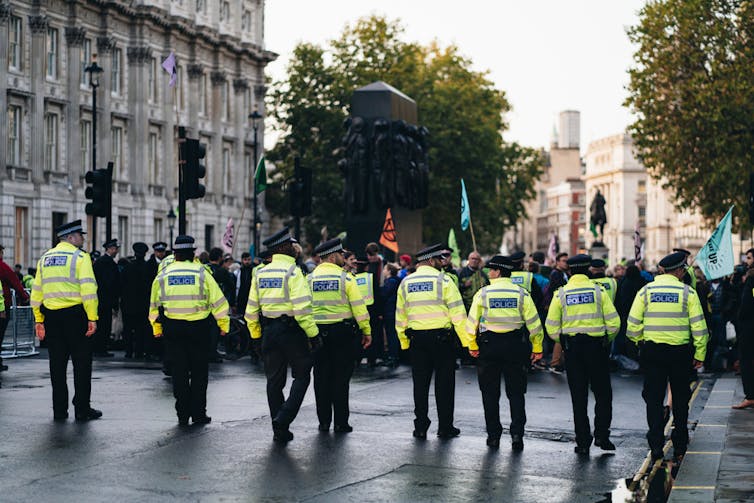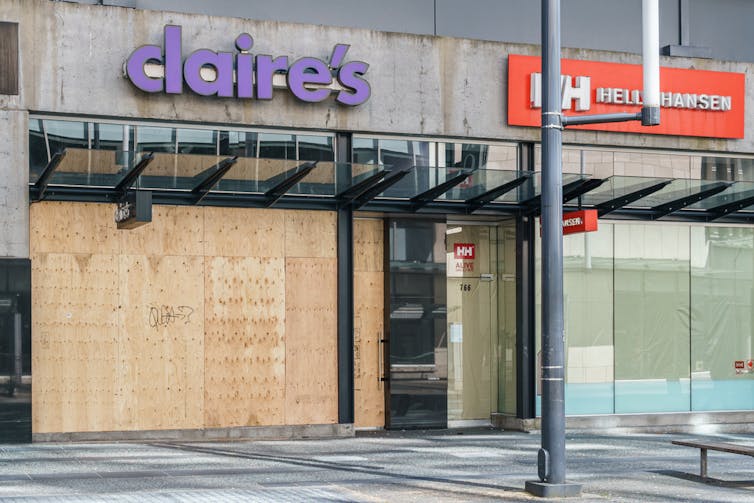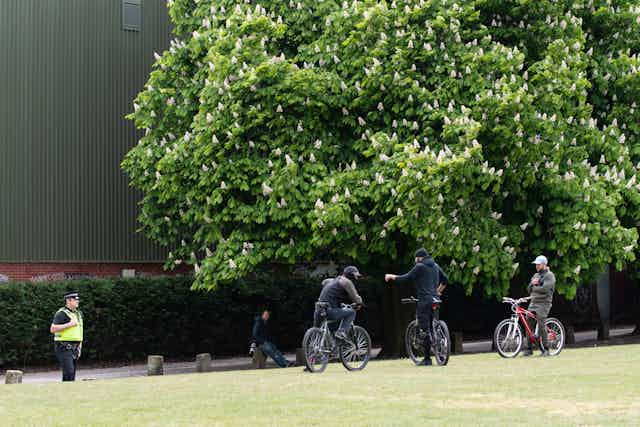Not so long ago, public order policing was all about managing potential crowd trouble in public spaces. It involved ensuring that big gatherings of football fans or protestors did not breach the peace, and minimising any danger or disruption to other members of the public – shoppers, residents, workers, tourists, or even passers-by.
Safeguarding the public in this way meant maintaining social order by ensuring that the smooth running of everyday life and work was not affected. But now every member of the public is a potential health threat.

In these unprecedented times of a 21st-century global pandemic, the normal order is suspended. When lockdown began, the normal, day-to-day activities the police would usually have tried to protect from disruption actually became threats to public safety. So they have been minimised to essential journeys, essential workers and essential businesses. And despite a “change of emphasis” for government guidance on work and exercise from May 10, the lockdown remains largely in place throughout the UK.
Because of COVID-19, the police now must now engage in a different form of crowd policing. In England and Wales, they must interpret anyone on the street as having a reasonable excuse to be there under the Health Protection (Coronavirus) Regulations 2020. If it appears otherwise, the police need to approach and question them.
Despite the requirement to take a cooperative approach that employs dialogue, encouragement and advice in the first instance, officers may have to resort to force and sanctions in some circumstances. This has sometimes led to wrongful charges and convictions. The public is now subject to the kind of policing tactics that are applied to gatherings perceived as “risky” – such as protestors and football fans.
This is where police must use discretion to assess a situation and interpret whether or not someone is breaching the law, to explain that breach and encourage them to comply or resort to enforcement.
Normally, public order policing is about making decisions on whether to disperse groups suspected of engaging, or about to engage, in disorder, or contain them. This containment is called “kettling”, where police surround a group of people until they deem the threat has passed or the main offenders have been isolated from the group.

Before coronavirus, this kind of operation would draw a distinction between the targets of public order policing and the public. Now the policing of lockdown places the entire population at the centre of a huge public order operation. This may be the new status quo, but critcisms of some police officers being too heavy-handed cannot be discounted. Nor can the preexisting statistics that reveal that black and minority ethnic citizens are more likely to be stopped and searched.
Policing and the economy
This “new normal” is not entirely unprecedented. There have of course been pandemics throughout history, such as the great 1918 flu, but even that resulted in far fewer lockdown conditions in the UK. To combat coronavirus, the UK government introduced new Health Protection Regulations to supplement pre-existing legislation such as the Public Health (Control of Diseases) Act 1984.
These regulations have led to the confinement of significant numbers of the labour force either working remotely or being placed on furlough, prompting terrifying predictions that this could lead to the collapse of the national and global economies.
Forecasts of a 35% reduction in GDP in the UK vie with projections of an economic meltdown that would dwarf anything seen in 2008. This puts enormous pressure on the government to begin an exit from the lockdown. But the negative response of medical and teaching unions to the proposed opening of schools from June 1 shows how contested this process will be.

There is a direct conflict between the need to return workers and consumers to full economic activity and the needs of public safety. This in turn has implications for how the police will regulate the behaviour of the public. Sustaining and growing our economy is reliant on labour and consumer spending. Where once the police used their powers to protect the continuity of public life and business, in enforcing lockdown, they are now in effect contributing to the economic slowdown.
The links between maintaining public safety and minimising disruption to business are now completely divorced from each other, putting the police in a very difficult position.

